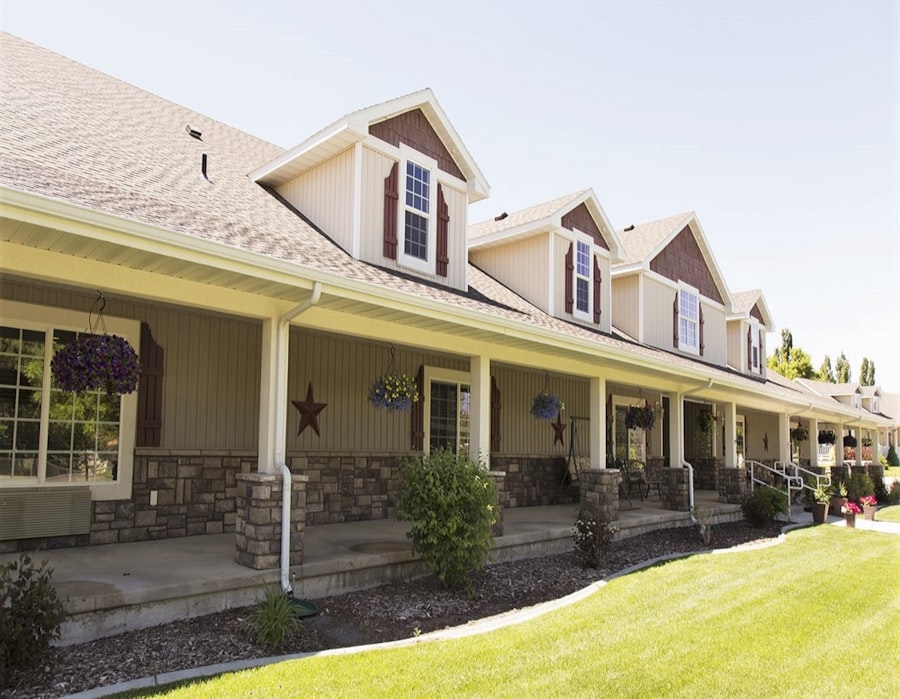As you delve into the world of elder care, you may find yourself intrigued by the role of private equity in this vital sector. Private equity refers to investment funds that acquire and manage companies, often with the goal of improving their performance and ultimately selling them for a profit. In the context of elder care, private equity firms are increasingly stepping in to provide the necessary capital and expertise to enhance facilities and services.
This trend is reshaping the landscape of elder care, as these firms seek to capitalize on the growing demand for quality services for an aging population. Understanding the dynamics of private equity in elder care is essential for anyone interested in the future of this industry. The influx of capital from private equity firms can lead to significant improvements in infrastructure, technology, and overall service delivery.
However, it also raises questions about the motivations behind these investments and their long-term implications for the quality of care provided to seniors. As you explore this topic, you will uncover both the opportunities and challenges that come with private equity’s involvement in elder care.
Key Takeaways
- Private equity plays a significant role in funding and expanding elder care facilities amid rising demand.
- The elder care industry offers substantial profit potential but comes with notable risks and challenges.
- Quality of care and ethical concerns are critical issues influenced by private equity investments.
- Regulatory and legal frameworks shape how private equity can operate within the elder care sector.
- Strategic investment approaches are essential for balancing profitability with care quality and ethical standards.
The Growing Demand for Elder Care Services
The demand for elder care services is on a steep rise, driven by demographic shifts and an aging population. As you consider the statistics, it becomes clear that a significant portion of the population is entering their golden years. The U.S. Census Bureau projects that by 2030, one in five Americans will be 65 years or older. This demographic shift creates an urgent need for comprehensive elder care services, including assisted living, nursing homes, and home health care. You may also recognize that this growing demand is not just a matter of numbers; it reflects a societal shift in how we view aging and care for our elderly loved ones. Families are increasingly seeking high-quality, personalized care options that cater to the unique needs of seniors. This demand presents a lucrative opportunity for private equity firms looking to invest in elder care facilities and services. By understanding the nuances of this market, you can better appreciate the potential for growth and innovation within the industry.
The Role of Private Equity in Funding Elder Care Facilities

Private equity plays a crucial role in funding elder care facilities, providing the necessary capital to improve existing services or develop new ones. When you think about the financial challenges faced by many elder care providers, it becomes evident that access to funding is essential for maintaining and enhancing care standards. Private equity firms often bring not only financial resources but also operational expertise to help facilities optimize their performance.
As you explore this further, consider how private equity investments can lead to modernization efforts within elder care facilities. This might include upgrading infrastructure, implementing advanced technology solutions, or expanding service offerings to meet the evolving needs of residents. By injecting capital into these facilities, private equity firms can help create environments that prioritize resident well-being while also positioning themselves for potential financial returns.
The Potential for Profit in the Elder Care Industry
| Metric | Value | Notes |
|---|---|---|
| Market Size (2024) | 400 Billion | Global elder care industry revenue |
| Annual Growth Rate | 7.5% | Projected CAGR over next 5 years |
| Number of Elderly (65+) | 750 Million | Global population estimate in 2024 |
| Home Care Services Market Share | 45% | Percentage of total elder care market |
| Average Annual Spending per Elderly Person | 12,000 | Includes medical and non-medical care |
| Profit Margin in Elder Care Facilities | 10-15% | Typical range for nursing homes and assisted living |
| Technology Adoption Rate | 30% | Percentage of elder care providers using advanced tech |
| Investment in Elder Care Startups (2023) | 5 Billion | Global venture capital funding |
The elder care industry presents a compelling opportunity for profit, particularly as demand continues to rise. As you analyze market trends, you may notice that private equity firms are increasingly attracted to this sector due to its potential for stable returns. The combination of an aging population and a growing preference for quality care creates a favorable environment for investment.
Moreover, you might find it interesting that elder care facilities often operate on a recurring revenue model, which can provide predictable cash flow for investors. This stability is appealing to private equity firms looking to mitigate risks while maximizing returns. As you consider the financial landscape of elder care, it becomes clear that there are numerous avenues for generating profit, making it an attractive sector for investment.
Risks and Challenges in Investing in Elder Care
While the potential for profit in elder care is significant, it is essential to recognize the risks and challenges associated with investing in this sector. As you delve deeper into this topic, you may encounter various factors that can impact the success of private equity investments in elder care facilities. For instance, regulatory changes can pose challenges, as compliance with state and federal regulations is critical for operating these facilities.
Additionally, you should consider the reputational risks involved in elder care investments.
As you weigh these risks against potential rewards, it becomes clear that a thorough understanding of the industry landscape is crucial for making informed investment decisions.
The Impact of Private Equity on the Quality of Elder Care

The involvement of private equity in elder care has sparked debates about its impact on the quality of services provided to seniors. On one hand, you may find that private equity investments can lead to improvements in facilities and services through increased funding and operational efficiencies. This can result in better living conditions, enhanced staff training, and access to advanced medical technologies.
Conversely, there are concerns that profit-driven motives may overshadow the primary goal of providing quality care. As you explore this dichotomy, consider how private equity firms balance their financial objectives with their responsibility to residents. The challenge lies in ensuring that investments translate into tangible benefits for seniors rather than merely serving as a means to generate profits.
Ethical Considerations in Private Equity Investments in Elder Care
As you navigate the complexities of private equity investments in elder care, ethical considerations come to the forefront. You may find yourself questioning whether profit should take precedence over the well-being of vulnerable populations. The ethical implications of prioritizing financial returns over quality care raise important questions about accountability and responsibility within the industry.
Moreover, you might reflect on how private equity firms can adopt ethical practices that align with their investment strategies. This could involve prioritizing transparency in operations, engaging with residents and families to understand their needs, and ensuring that staff are adequately compensated and trained. By fostering a culture of ethical responsibility, private equity firms can contribute positively to the elder care landscape while still pursuing their financial goals.
Regulatory and Legal Considerations for Private Equity in Elder Care
Navigating the regulatory landscape is a critical aspect of private equity investments in elder care. As you explore this area, you’ll discover that compliance with state and federal regulations is essential for operating facilities successfully. These regulations often encompass various aspects of elder care, including staffing ratios, safety standards, and resident rights.
You may also find it interesting that regulatory changes can significantly impact investment strategies within the sector. For instance, shifts in reimbursement policies or funding sources can alter the financial viability of certain facilities or services. Understanding these legal considerations is vital for private equity firms looking to make informed investment decisions while minimizing potential liabilities.
Strategies for Maximizing Profit in Elder Care Investments
To maximize profit in elder care investments, private equity firms must adopt strategic approaches tailored to the unique dynamics of the industry. As you consider these strategies, think about how operational efficiencies can be achieved through technology integration and streamlined processes. Implementing advanced management systems can enhance communication among staff and improve overall service delivery.
Additionally, you might explore how diversifying service offerings can create new revenue streams within elder care facilities. For example, expanding into specialized memory care or rehabilitation services can attract a broader range of residents while addressing specific needs within the community. By employing these strategies, private equity firms can position themselves for sustained profitability while contributing positively to the quality of care provided.
The Future of Private Equity in Elder Care
Looking ahead, the future of private equity in elder care appears promising yet complex. As you analyze emerging trends, consider how technological advancements are likely to shape the industry landscape. Innovations such as telehealth services and smart home technologies have the potential to revolutionize how care is delivered to seniors.
Moreover, you may find it intriguing that demographic shifts will continue to drive demand for elder care services. As more individuals enter retirement age, private equity firms will need to adapt their strategies to meet evolving expectations regarding quality and accessibility. The ability to remain agile and responsive to market changes will be crucial for success in this dynamic environment.
Evaluating the Pros and Cons of Private Equity in Elder Care
In conclusion, evaluating the pros and cons of private equity involvement in elder care requires careful consideration of various factors. On one hand, you may recognize that private equity investments can lead to improved facilities and services through increased funding and operational expertise. This has the potential to enhance the quality of life for seniors while providing attractive returns for investors.
On the other hand, it is essential to remain vigilant about the ethical implications and potential risks associated with profit-driven motives in this sensitive sector. Striking a balance between financial objectives and quality care is paramount for ensuring that seniors receive the support they deserve. As you reflect on these complexities, you will gain a deeper understanding of the multifaceted relationship between private equity and elder care—a relationship that will undoubtedly continue to evolve as society grapples with its aging population.
Private equity firms have increasingly turned their attention to the elder care sector, capitalizing on the growing demand for senior living facilities and services. This trend raises important questions about the balance between profit and quality of care. For a deeper understanding of how wealth is generated in this industry, you can read more in the article on How Wealth Grows.
WATCH THIS 🛑 The Profit of Death: How Wall Street Took Over Senior Care
FAQs
What is private equity in the context of elder care?
Private equity refers to investment firms that acquire or invest in elder care companies, such as nursing homes and assisted living facilities, with the goal of improving operations and generating financial returns.
How do private equity firms make profits from elder care?
Private equity firms typically make profits by improving the efficiency and profitability of elder care facilities, increasing their value, and eventually selling them at a higher price. They may also generate income through management fees and operational improvements.
What impact does private equity ownership have on elder care quality?
The impact varies; some studies suggest that private equity ownership can lead to cost-cutting measures that may affect care quality, while others indicate improvements in management and services. The effects depend on the firm’s strategies and oversight.
Are there concerns about private equity involvement in elder care?
Yes, concerns include potential reductions in staffing levels, prioritization of profits over patient care, and increased financial burdens on facilities. Regulators and advocates often scrutinize private equity-owned elder care providers for these reasons.
How widespread is private equity investment in elder care?
Private equity investment in elder care has grown significantly over recent years, with many firms acquiring nursing homes, assisted living, and home care companies across various regions.
What regulations govern private equity-owned elder care facilities?
Elder care facilities, regardless of ownership, are subject to federal and state regulations concerning patient safety, staffing, and quality of care. Private equity firms must comply with these regulations while managing their investments.
Can private equity ownership improve elder care services?
In some cases, private equity firms bring capital and management expertise that can enhance services, update facilities, and implement innovative care models. However, outcomes depend on the firm’s commitment to balancing profit and quality care.
How can families assess the quality of private equity-owned elder care facilities?
Families can review inspection reports, staffing levels, patient outcomes, and reviews from residents and their families. Transparency about ownership and financial practices can also provide insight into the facility’s priorities.
